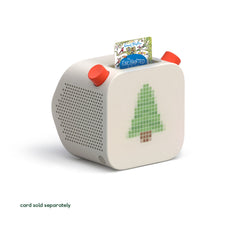Q&A with KidNuz: How to Discuss Current Events with Your Kids
Watching youngsters begin to think for themselves is one of the many joys of parenting. And with growing minds comes budding curiosity! But sometimes your child’s news questions can catch you off guard. They’re hearing things at school and from friends and it’s hard to determine which information to filter out when trying to provide honest answers.
We recently invited Ro Schwarz and Kim Hunter from KidNuz, a media platform with the mission of engaging kids in nonpartisan, age appropriate current events, to thoughtfully tackle your questions on how to talk to your kids about what’s going on in the world. Check out their insights below!
How does the card work? Is there new content shared each day and how is the content chosen?
The card is connected to the KidNuz podcast and there is new content every day. The podcast is Monday through Friday and always features 6-7 stories covering current events and anything from science headlines to health, news, human interest and sports.
What (if any) limit is there to what you cover? What sort of content considerations would you give yourself at this podcast? What ages have you seen respond best to KidNuz?
We found that the 8-12 year old age range is super curious and most receptive to the current events we cover. We stay away from violent crime and 3rd rail political issues, but we’ll tackle all other subjects in an age appropriate, nonpartisan way. Kids love that they know what’s going on and teachers and parents are thrilled with the way we open the door to great conversations.
For younger kids what are some age-appropriate ways to discuss potentially 'scary' news stories they may see or hear about? I have a 4-year-old who has started asking me some questions about topics she hears in school.
Great question. Whether we like it or not, our kids are hearing about things we wish they wouldn’t. We found that the key is to let them take the lead. When they approach you with questions, first ask them what they’ve heard about the story, correct any misinformation, then ask what more they’d like to know and only answer those questions so as not to give them info they really don’t want or need. And keep the answers short and age appropriate - and praise them for asking questions! Always better to get the info from mom or dad than the playground.
Is there anything else you recommend that can help keep kids interested in appropriate current events and wanting to learn more without having them scroll the internet?
Setting up a routine to listen will get them in the habit of always wanting to be in-the-know, and maybe picking a headline or two from the newspaper (if you’re still getting one!) to talk about. KidNuz also has other free resources available to keep the conversation going: a weekly word search that includes news terms from the week, and a monthly, critical thinking Noodler worksheet that prompts kids to look at current events from a different and sometimes more personal perspective. For example, how would they handle a certain situation if they ran things?
I'm really interested in this for my daughter. Will it be global news or biased towards one country?
So glad you’re interested! KidNuz covers stories from all around the world and we have listeners in 200 countries and territories! Some of the global news we’ve covered in the past few days include the satellite on its way back to Earth, the new bee vaccine, and the heat wave impacting ski resorts in Europe.
We hope these tips were helpful! Looking for more ways to discuss current events and media literacy with your children? Check out the KidNuz website for some great resources and be sure to tune into their daily podcast episodes. If you aren't already, be sure to join our Facebook Group where you can connect with over 25,000 parents and Yoto fans from all over the world!
What topic would you like us to cover for the next #AskMeAnything? Let us know on social media, or send us an email at hello@yotoplay.com!





